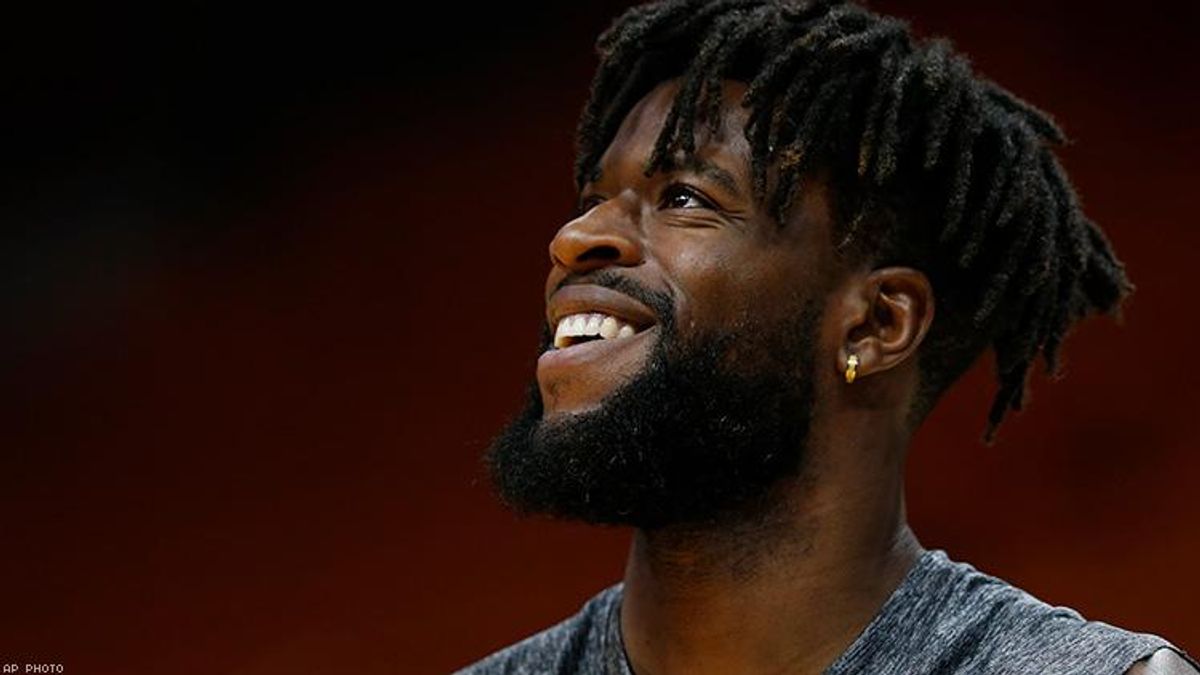Sports
An NBA Star Turns the Murder of His Trans Sister From Pain to Power

Reggie Bullock stars in a new VICE doc highlighting his journey to trans allyship.
January 23 2019 2:13 PM EST
May 31 2023 5:27 PM EST
By continuing to use our site, you agree to our Private Policy and Terms of Use.

Reggie Bullock stars in a new VICE doc highlighting his journey to trans allyship.
From great tragedy can come great purpose. Such is the case for Detroit Pistons shooting guard Reggie Bullock, who is the central focus of a new Vice Sports documentary titled The NBA Player Fighting for LGBTQ Equality. Bullock does not identify as a member of the community, but rather as an ally, having become outspoken about that title after the murder of his transgender sister Mia Henderson in 2014.
Henderson was 26 years old when she was stabbed to death in West Baltimore, escalating the continuously growing number of murdered transgender women in the United States. Her murderer, as is too often the case, was acquitted of all charges.
In 2018, Bullock took to the 29th Annual GLAAD Media Awards stage to celebrate his sister's life and honor her memory. "For so long I didn't understand my sister," he told the crowd. "I loved her and I was happy to see her living her truth, but I wasn't educated about what she was going through... After she was murdered, I knew I had to use my platform to help Mia and woman like her... Athletes have voices and we should be able to stand up for what we believe in," he told the crowd to raucous applause.
In the audience that night was producer Erica Matson. "I was incredibly moved by how open and raw Reggie was about everything," Matson told Out. She was in attendance to accept an award for her and her team's documentary about Danica Roem, the first openly trans person to be elected and serve in any U.S. state legislature. "I don't think we give people enough credit for their own journeys towards acceptance and as an ally, I think that's really important for Reggie to talk about. So when I saw him on the dance floor after the show, I gave him my card and told him I wanted to do whatever I could to get his story and his message out there. I honestly didn't think anything would happen but I heard back from his agent almost the next day. And we just went from there."
The documentary, which was released on January 16, shows Bullock and his son attending their first Pride Parade with openness, excitement, and genuine curiosity. "Here's this young basketball player from the South whose trans sister was murdered, and in having to deal with that he's also had to confront his own lack of LGBTQ+ education," Matson said. "And he doesn't want his son to lack that education and understands that it begins with visibility and exposure to new people and ideas at a young age. 'To fill your heart with love,' as Reggie would say. Just watching Reggie's face during Pride was the best -- he was loving it."
The documentary spotlights the possibility and potential of allyship, a letter sometimes less considered in our ever growing acronym to somehow encapsulate our disparate-yet-connected community. "Reggie is very aware of the power he has as a straight guy in the locker room talking about this stuff. And he doesn't approach the conversation atop a pedestal of 'You guys should know better,' which I think ultimately turns some people off from trying to make changes in their life. People want to feel safe in knowing they can stumble along the way and not be punished for it. It can be easy to forget how hard some peoples' path towards acceptance can be, not because of hate, but because they lacked exposure to those worlds."
"Credit to him that he's using that pain and the platform that he has to speak out on these issues because we need more and more athletes to speak up to help change the culture of sports," Jason Collins, the first openly gay NBA player, says in the doc. In a similar vein, Jake Bain recently toldOut that culture trickles down to the minor leagues and even into high school locker rooms, out college football player. "It definitely impacted me a lot and made me question if I was ever going to be able to come out in such an environment."
Of course more out LGBTQ+ athletes in professional sports is needed, but the work Bullock is doing in the immediate, that of working to systematically shift the culture to one of increased acceptance, is greatly wanted. "It starts with people like Reggie sharing his story publicly," Matson said, "talking to players in locker rooms, and putting pressure on the people at the top to make the game and its audience more inclusive."
You can watch the documentary in its entirety below:
Sexy MAGA: Viral post saying Republicans 'have two daddies now' gets a rise from the right